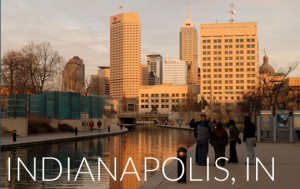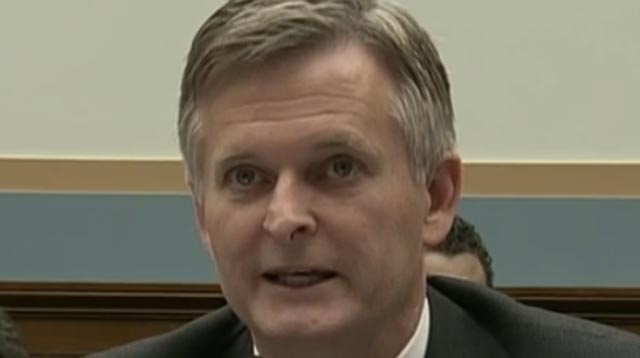
Will Congress reward the ambitious places that are seizing their future with both hands?
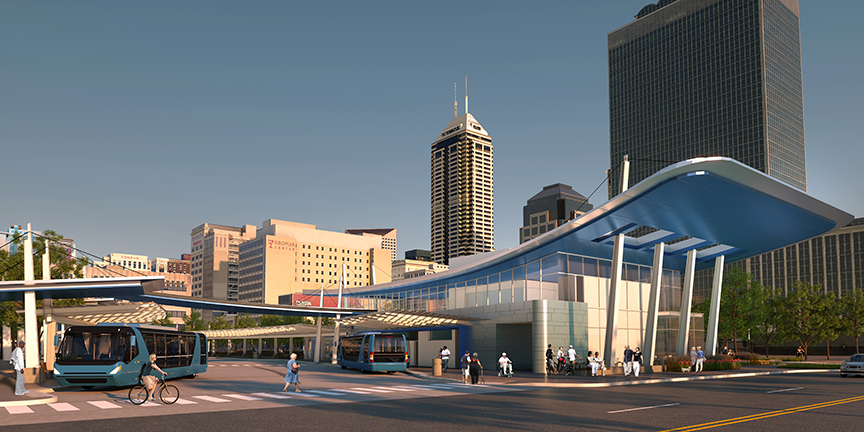
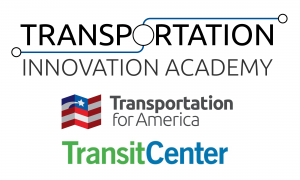 The three mid-sized regions participating in this week’s Transportation Innovation Academy in Indianapolis are a refreshing reminder that local communities – particularly a growing wave of mid-size cities — are seizing their future with both hands and planning to tax themselves to help make ambitious transportation plans a reality. Yet even the most ambitious cities can’t do it alone, and if Congress fails to find a way to put the nation’s transportation fund on stable footing, it will jeopardize even the most homegrown, can-do plans to stay economically competitive.
The three mid-sized regions participating in this week’s Transportation Innovation Academy in Indianapolis are a refreshing reminder that local communities – particularly a growing wave of mid-size cities — are seizing their future with both hands and planning to tax themselves to help make ambitious transportation plans a reality. Yet even the most ambitious cities can’t do it alone, and if Congress fails to find a way to put the nation’s transportation fund on stable footing, it will jeopardize even the most homegrown, can-do plans to stay economically competitive.
Following up on the first session of this yearlong academy, sponsored by both T4America and TransitCenter, that began back in March, 21 representatives from these three similar-sized cities — Indianapolis, Raleigh, and Nashville — are reuniting in Indianapolis today and tomorrow to learn from experts and from each other about how to make their ambitious transit expansion plans a reality.
Follow along today and tomorrow (May 14-15 on twitter by following @T4America, @TransitCtr, and the hashtag #TranspoAcademy. The participants will be sharing some of the helpful nuggets of info they’re hearing throughout the two-day workshop.
With Infrastructure Week events happening here in DC all week (#RebuildRenew), it’s a good reality check to hear about these forward-looking plans bubbling up from the grassroots in cities far away from Capitol Hill.
So what’s on tap in Indy that’s worth sharing with the other business and civic leaders from Raleigh and Nashville this week?
While the particulars vary from place to place, Indy isn’t all that different than Nashville and Raleigh. All three cities have various groups of leaders who have coalesced around the notion that big investments in transit are crucial to their long-term economic prosperity and competitiveness.
As the task force concluded in Indianapolis in the story above, a well-rounded investment in a multimodal transportation network in Indy is the long-term plan with the highest return-on-investment. Though all are in different stages of the process, all three are making plans to tax themselves and/or raise local revenue that they are hoping to pair with additional investment from a reliable federal partner.
But will the feds continue to be a reliable partner?
We’ve spent a lot of time here focusing on the trend of states raising new transportation funds over the last few years, and some have mistaken that to mean that states are ready to go it alone. The truth is far from it. While all of these states are moving to address growing needs and declining revenues, they’re absolutely counting on the feds to continue their historic role as a partner. And shouldn’t those efforts be rewarded, rather than using it as an excuse to pass the buck down to states or localities?
In a story detailed in our longer “can-do” Indy profile, Indy is counting on the feds to support their efforts to get started with their bus rapid transit network.
The Red Line won’t get off the ground without a grant from the Federal Transit Administration, and if Congress fails to keep the nation’s trust fund solvent this summer and pass an annual appropriations bill with robust funding for infrastructure, neither will happen. Not only is Indy hopefully raising their own local funds, they’re also leveraging other investments to support the corridor and help it be as successful as possible — like prioritizing their federal block grants for community development into the soon-to-be Red Line corridor.
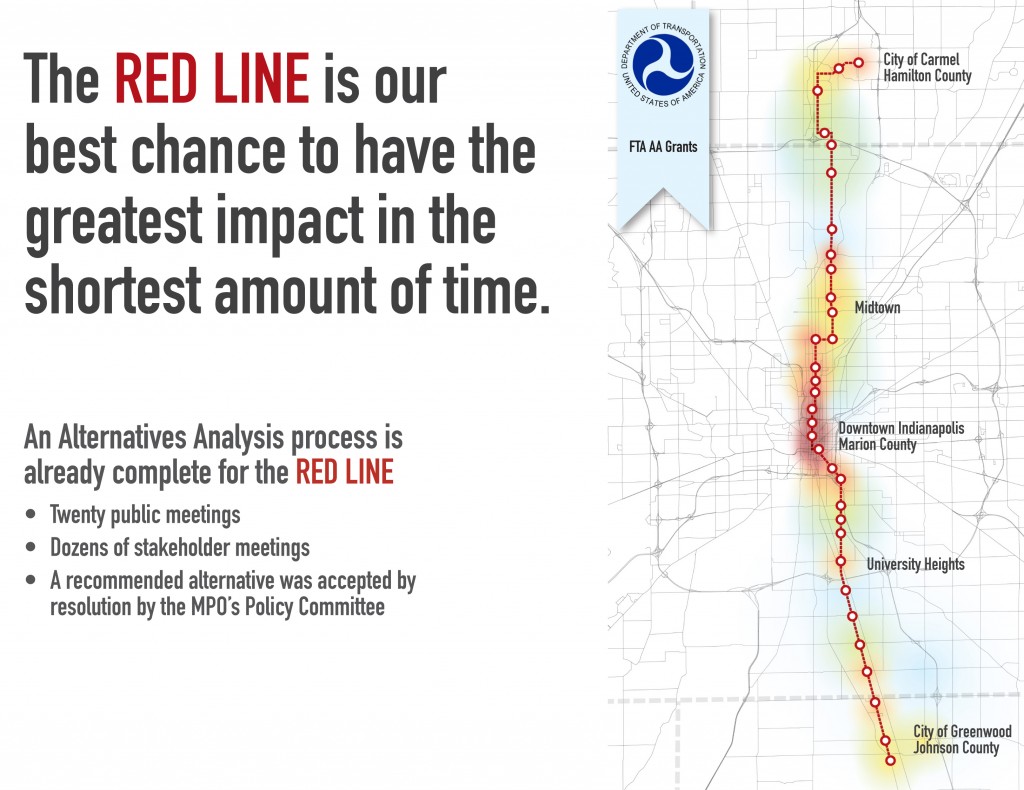
Indy, Raleigh, Nashville, and dozens of other cities and regions have been putting their own skin in the game as they make their bets on smart transportation investments. Yet Congress has shown no sign of either settling on a long-term funding source or coming up with an authorization proposal that lasts more than a couple of years. (Or a couple of months!)
Infrastructure Week, happening now, is a great time to hear from leaders of all stripes about the importance of investing in our nation’s infrastructure, but it can feel a little vague or hard to wrap your head around. Which infrastructure? What kind of infrastructure? To what end?
Hearing more about these very specific plans in Raleigh, Nashville and Indianapolis is a great way to bring the point of Infrastructure Week to a specific, understandable, local focus. For these three cities, transit = continued economic prosperity.
Mark Fisher, vice president of government relations and policy development at the Indy Chamber, made this connection clear in the Chamber’s press release for today’s event. “Other regions are using transit to attract talent and investment, connect workers to jobs and spark new development. We must move forward or we will continue to fall behind,” he said.
Hopefully the leaders on Capitol Hill will take note of the things happening in Indianapolis this week — and in Nashville and Raleigh and countless others — and finally come up with the fortitude required help our local economies prosper.




